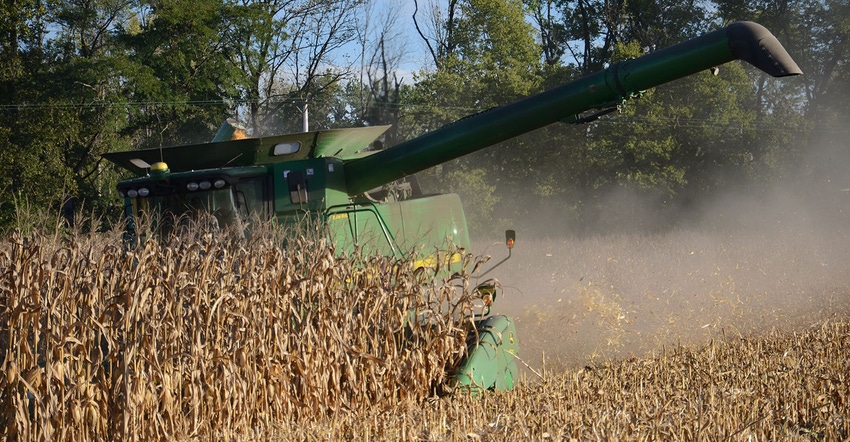October 28, 2019

Farm lease experts say that over the long haul, landowner returns from major types of leases—cash rent, share lease or flex-lease, a combination of the two -- tend to come out pretty much equal. However, returns to the landowner can vary considerably between lease types in any given year.
“The type of lease you choose really needs to be based on you and your goals for your farm,” says A.J. Jordan, veteran farm manager with Halderman Farm Management and Real Estate, Wabash.
For a different perspective on choosing the right lease for you and your farm, consider “personality types,” and the kinds of leases that may fit them best, Jordan suggests.
Landowner traits
Here’s how Jordan sizes up landowner personality types.
Risk-averse, wants guaranteed, predictable income. “Straight cash rent is the clear winner here,” he says.
Just keep it simple. Again, a straight cash rent lease probably comes out on top. Share leases, whether traditional 50-50, or 1/3-2/3, with one third of the crop net to the landowner, are also simple, but require more recordkeeping.
Wants to be fair with tenant. While almost all landowners want a competitive return, most want to be fair with their tenant. They realize a truly fair agreement needs to be good for both parties. “For fairness, share leases, whether 50-50, 1/3-2/3, or 35%, are hard to beat,” says Jordan. “Landowners and tenants alike share in good times and bad.”
Hates to negotiate. For those who don’t relish conflict, negotiating a cash lease, especially in tough times, can be a difficult, stressful or dreaded task. A share lease is probably the easiest answer.
Likes to negotiate. A reasonable number of landowners enjoy “the art of the deal,” and like to negotiate the very best agreement they can. Try either a straight cash lease or a flex-lease. Don’t overlook possible pitfalls—like making sure fertility levels aren’t being sacrificed to achieve that agreed-upon rent.
Wants to be involved. For those retired farmers who just “want to keep their hand in,” or want involvement and some managerial control, a share lease is the method of choice. For those who want even more control, another option is the custom-hire lease. The landowner assumes all risk but gets all the crop. He or she just hires fieldwork, planting and harvesting.
Boone writes from Wabash, Indiana.
About the Author(s)
You May Also Like






